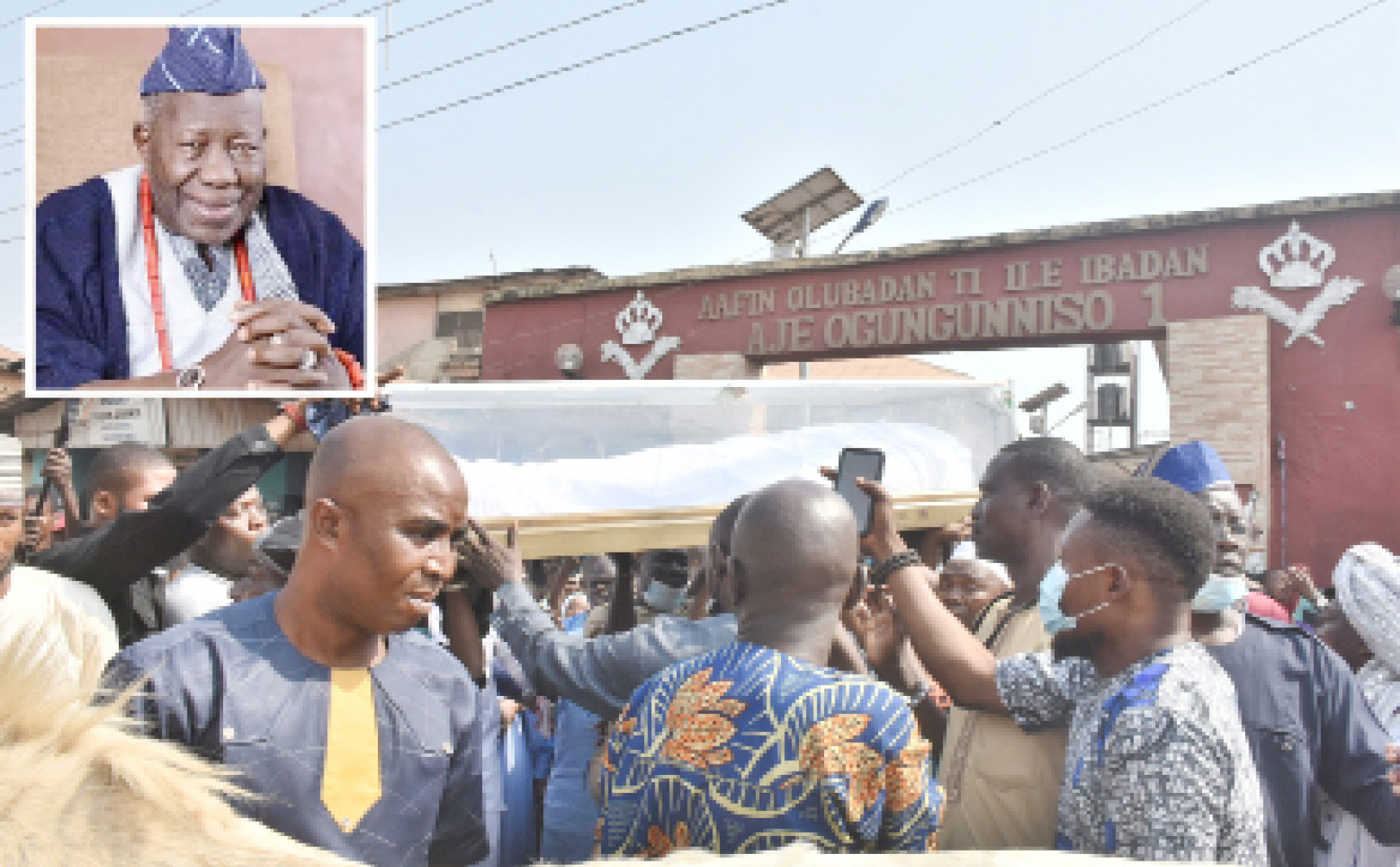The dream of the average male child of Ibadanland, the Oyo State capital is to ascend the throne of Olubadan because all the male children are potential Olubadan, because of the way it is structured.
Daily Trust reports that unfortunately, the structure did not give room for a young person to become Olubadan, as they usually emerged at their old age.
- Expect more positives from govt in new year — Masari
- We’ll be tougher on drug barons this year — NDLEA
For an Ibadan chief to get to the throne of Olubadan, such a person needs to rise through the ranks of Mogaji to get promoted through two ruling lines, which are; Egbe Agba (civil) and Balogun (military), from where Olubadans are appointed on a rotational basis to occupy the stool on the death of a monarch, a journey of at least between 35 to 40 years in most cases.
Unlike other parts of Yoruba land, the system is indeed unique in the sense that a reigning Olubadan knows the next most senior member of the Olubadan in council that will succeed him after his demise.
Potential monarchs or aspirants to the Olubadan stool would have to climb a 22-steps ladder from Jagun Olubadan or 23-steps ladder from Jagun Balogun to the Olubadan throne because there are two alternating lines (Otun and Balogun) to the Olubadan stool.
For enduring many years, climbing the ladder, many described it as torture stick to the throne.
According to the history of Ibadanland, any High Chief who makes an attempt to get rid of his senior on the ladder would not get to the throne of Olubadan before he dies.
The next to Olubadan and most senior on both lines are the Otun Olubadan and Balogun, who under the Western Nigeria Law are recognised as second class traditional rulers and who are included on the Nigerian equivalent of a civil list as a result.
Others are the Osi Olubadan, Asipa Olubadan, Ekerin and Ekarun, as well as Otun Balogun, Osi Balogun, Asipa Balogun, Ekerin and Ekarun Balogun, while the Seriki (“commerce minister” or “trade chief”) and Iyalode, (i.e. mother of the town as “minister for women affairs” or “female chief”) are also members of the Olubadan’s Privy Council.
The 11 High Chiefs that formed the Olubadan-in-Council, apart from the Seriki and Iyalode, are recognised as the traditional head of each of the 11 LGs in Ibadanland. It was learnt that the progenitors of Ibadan frowned at the involvement of the senior chiefs in partisan politics because of the salient neutral roles they were expected to play in their domains. For instance, they are appointed as presidents of customary courts, who are expected to adjudicate on matrimonial, land, boundary and other communal disputes.
Worried over the long time it takes before an Olubadan emerges, many families in recent times have started nominating their first sons in their 20s for the position of Mogaji, meaning before they have chances of becoming Olubadan in their 60s.
Things being equal, another 79-year-old former senator, Lekan Balogun will succeed the late Oba Saliu Adetunji who was announced dead on Sunday morning.
Lekan Balogun sits on the board of several companies with interests in oil and gas, distributive trade, management consulting, mechanised farming and export of non-oil items as well as travels and tourism.
A former senator, he was an administrator/head, industrial relations, recruitment and scholarships, planning and development at Shell Petroleum Development Company.
He was also a Research Fellow with the Ahmadu Bello University, Zaria, a director with Triumph Newspaper, Kano; editor of the monthly Magazine-The Nigerian Pathfinder as well as a management consultant for multinational organisations such as Leyland, Exiat Battery and Nigerian Breweries.
He’s a renowned technocrat, author and philanthropist.
He holds a Doctorate, Master’s and Bachelor’s Degrees in Public Administration; Public and Social Administration and Economics from Columbus International University, Brunel University and Manchester University all in the United Kingdom.
A former presidential aspirant on the platform of SDP, Senator Balogun was also a gubernatorial candidate for the PDP in Oyo State in the present political dispensation and a Senator of the Federal Republic of Nigeria in the Fourth Republic.
He was chairman Senate Committee on National Planning and was a member of many Senate committees such as appropriations, security and intelligence, police affairs and defence (Army).
The soon-to-be 80-year-old Balogun has written and published widely. Many of his publications include but not limited to; A Review of Nigeria’s 4 years’ Development Plan, 1970-1974; Nigeria: Social Justice or Doom; Power for Sale: published in Punch Newspaper; Arrogance of Power; Nigeria: The People Must Decide, among other publications.
The soon-to-be-crowned Olubadan has not been without his own share of controversy. In 2018, he alongside other Ibadan high chiefs got into a long-drawn battle with the late revered king.
Speaking with Daily Trust, a Mogaji of Ibadan land, Mogaji Wale Oladoja advocated for indigenes of Ibadanland to install their male children as Mogaji at a tender age.
“It is good for our people to use their children rather than themselves. For instance; it is easier for a young man of 20 years old to become Oluband than many of us who emerged Mogaji in the 50s.
“We mourn our father, Oba Saliu Adetunji. He was a great man. He had done well for Ibadanland. Ibadan will continue to be proud of our tradition. It is the most peaceful in Nigeria,” he said.

 Join Daily Trust WhatsApp Community For Quick Access To News and Happenings Around You.
Join Daily Trust WhatsApp Community For Quick Access To News and Happenings Around You.


